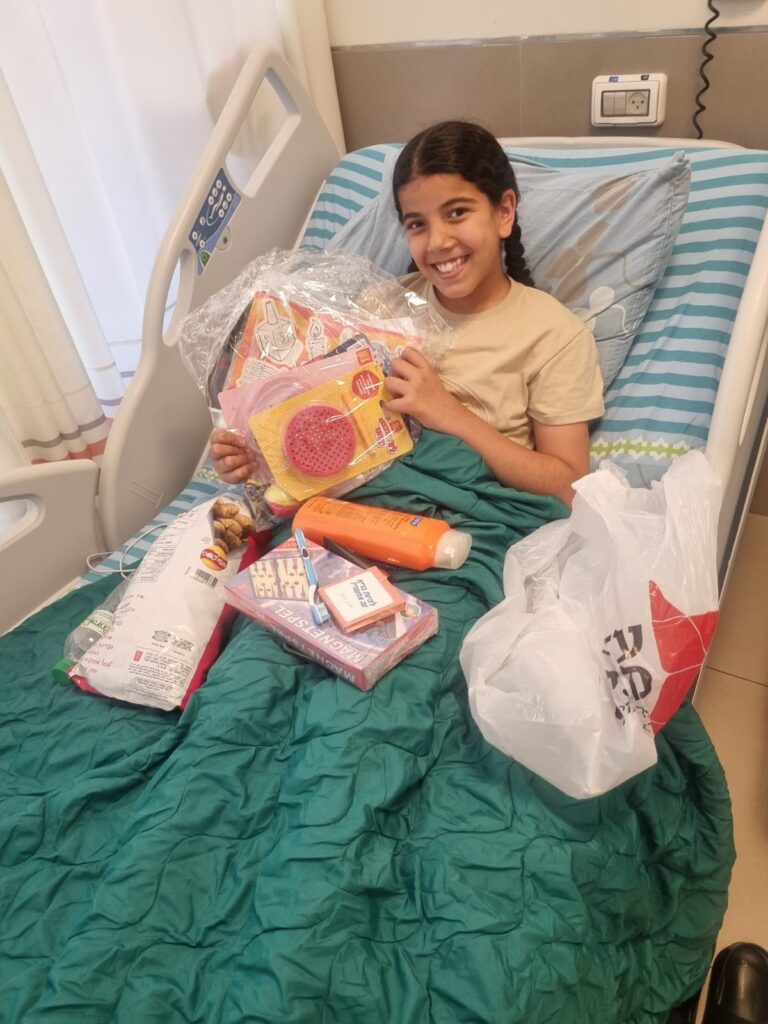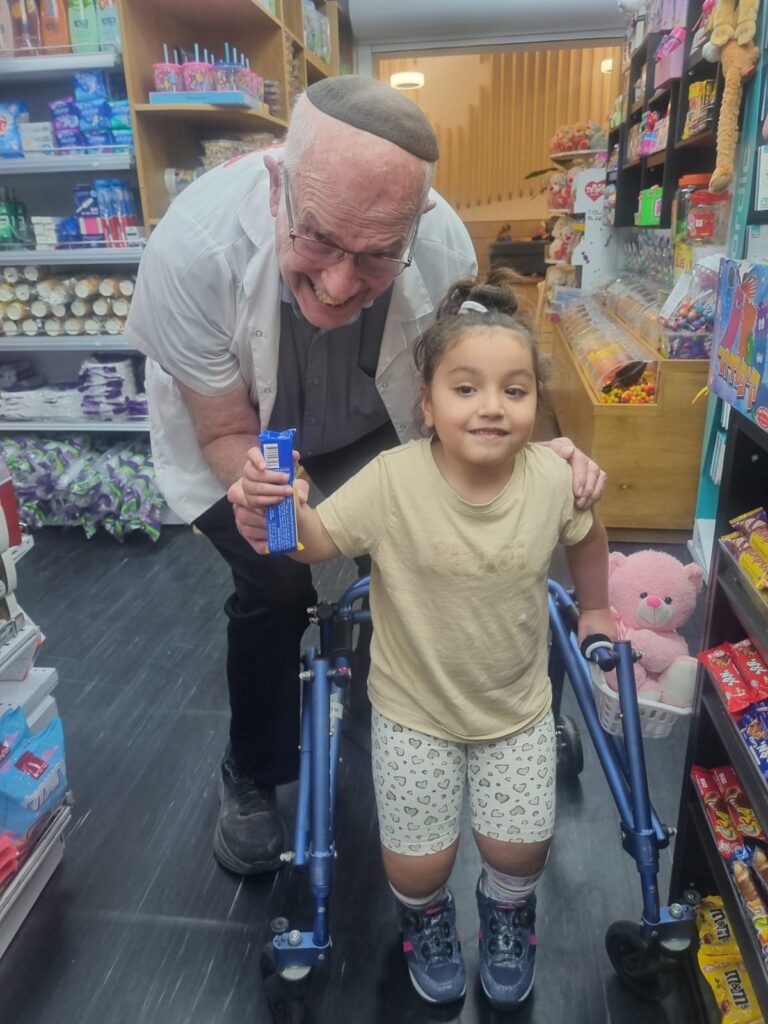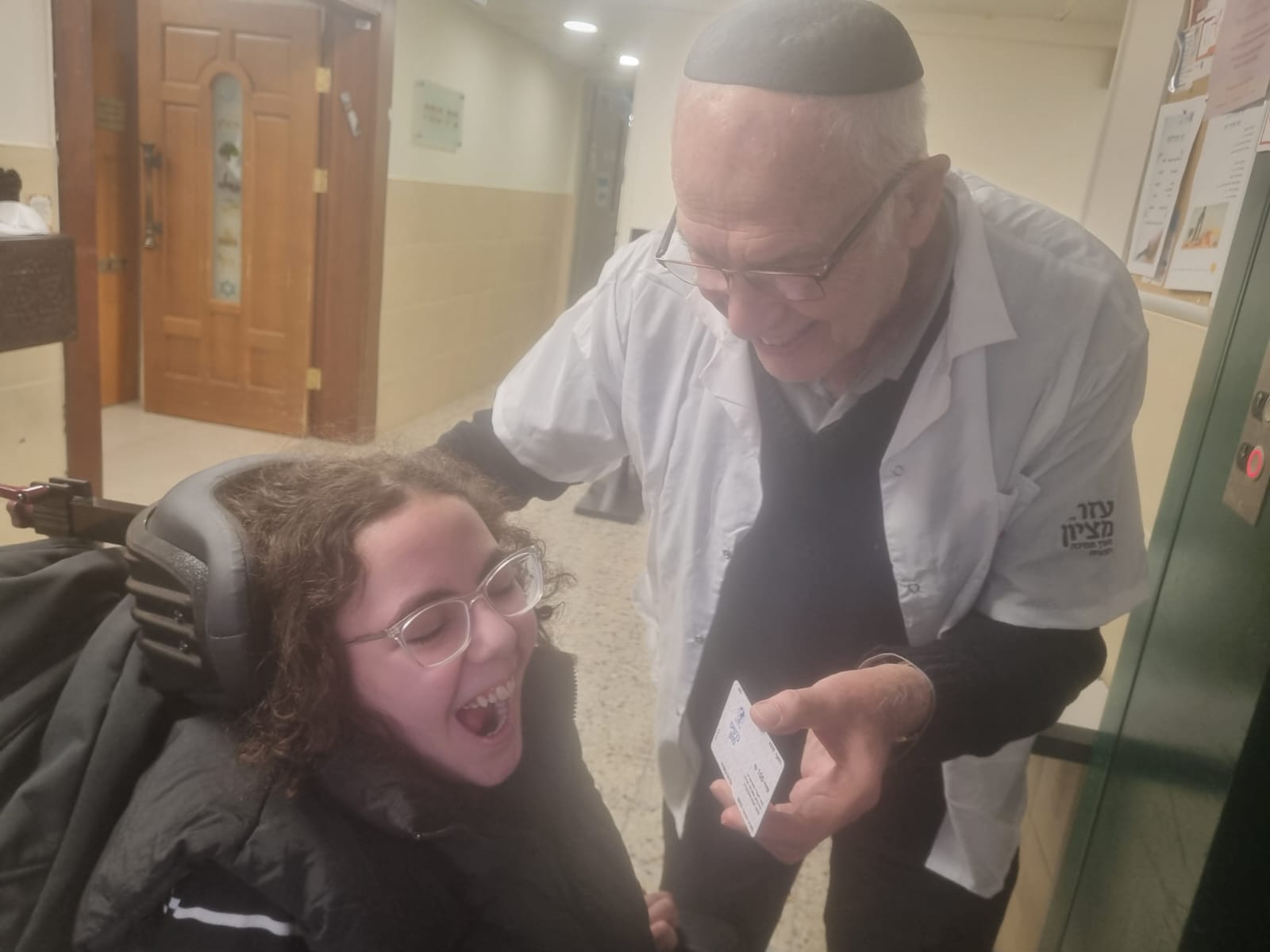When things go wrong—a diagnosis, an accident, a war—we often take comfort in the small, familiar things. A warm meal. A phone call. A change of clothes. The knowledge that, at the end of the day, we’ll sleep in our own bed.
But for the children and families at Beit Levenstein Rehabilitation Center in Raanana, those basic comforts are often out of reach. After the emergency room, after the surgeries, after the trauma—there’s the long road of recovery. And for many, that road is isolating, exhausting, and lonely.
That’s where Rabbi Shlomo Klughaupt steps in.
For over a decade, Rabbi Klughaupt has served as a lifeline for patients and families who arrive at the rehabilitation center physically broken, emotionally overwhelmed, and often financially strained. His work—powered entirely by donor support—is about restoring more than function. It’s about restoring hope.
“After a month or two in the hospital,” he explained in a recent conversation, “the money in the house is running out. People need help.” Sometimes that help means gas money to visit a child. Sometimes it means buying special orthopedic shoes, or clothes for a child who arrived with nothing. Always, it means preserving the patient’s dignity—and helping the family hold on.
Every child who arrives receives a welcome gift: art supplies, makeup, games—something tailored to their age and needs. “I tell them, I’m not here to give you shots. I’m here to make you happy,” Rabbi Klughaupt said. It’s a small gesture, but a powerful one. “Someone’s giving me something. I’m worth something,” the kids often seem to say.

Some children stay for weeks or months without visitors. Rabbi Klughaupt tells them: if you can show me one thing you can do now that you couldn’t do a week ago, you’ll earn a small reward—money to buy a snack or a toy from the hospital store. It’s a moment of independence in a place where so much is out of their control.
During the recent war with Iran, most children who could go home were discharged. But those with serious needs—those paralyzed, on IVs, or recovering from major surgery—remained. The hospital halls grew quiet. The days grew long. And Rabbi Klughaupt got to work.
There was a boy who had lost his vision after surgery to remove a growth. With no friends around, Rabbi Klughaupt arranged guitar lessons—giving him a creative outlet and a reason to look forward to each day. A young girl who could no longer walk, and whose friends couldn’t visit due to war-related travel restrictions, received a graphic design tablet so she could keep drawing. Another patient, an avid reader, was given new books when the hospital’s selection fell short.
When a child’s phone broke and they lost contact with family, Rabbi Klughaupt worked with a local shop to replace or repair it. When families arrived without clothes, he quietly sent someone to buy what they needed. Every act of kindness was done through the hospital’s social workers and tailored to each family’s reality.
And then there are the stories that stay with him forever.
One young teenager, battling cancer, was flown to a hospital in Somerset, New Jersey for a final chance at treatment. His family used insurance funds to get there, and Rabbi Klughaupt helped his older sister fly as well—so she could support their overwhelmed mother and be with her brother. Before the boy left, Rabbi Klughaupt gave him 1,000 shekels, divided into weekly amounts. “I told him, I want you to have spending money. I want you to feel free.” The boy’s dream was to see an NBA game. With help from donors and a local synagogue, he made it to Madison Square Garden. Not long after, he passed away—but not before that final dream came true.

“This is about helping people feel like they’re still here,” Rabbi Klughaupt said. “That they’re still worth something.”
What happens at Beit Levenstein is more than rehabilitation. It’s a quiet kind of redemption—one built on human connection, creativity, and care. And it’s only possible because people like you choose to show up.
Your donations don’t just fund supplies or equipment. They buy books. They buy chocolate. They buy one more reason to smile.
They tell a child, you are not forgotten.
Help us bring comfort, dignity, and joy to those on the hardest journey—because healing takes more than medicine.




